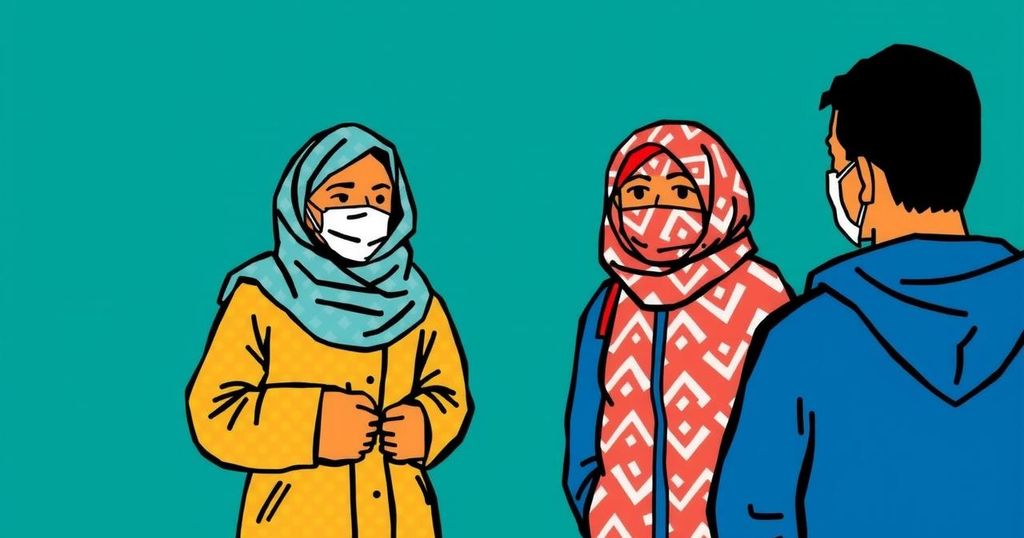The U.S. government will not renew the humanitarian parole program that allowed approximately 500,000 migrants from Venezuela, Haiti, Cuba, and Nicaragua to enter the country. As authorizations expire, migrants face the risk of deportation if they do not secure permanent legal residency. This decision occurs amid escalating crises in their home nations and alters the landscape of U.S. immigration policy significantly.
The U.S. government has announced its decision not to renew the humanitarian parole program that has allowed approximately 500,000 Venezuelans, Haitians, Cubans, and Nicaraguans to enter the country over the past two years. As a result, participants who have utilized this two-year program face the necessity of departing the United States unless they pursue alternative means to establish legal residency. With initial authorizations approaching expiration later this month and in January 2025 for other nationals, the timing of this decision has raised concerns among advocates and migrants alike amid escalating political and humanitarian crises in their home countries. This program, which originated in October 2022 to provide a legal entry pathway for Venezuelans, later expanded to include Cubans, Haitians, and Nicaraguans in January 2023. While Temporary Protected Status (TPS) offers options for some beneficiaries, uncertainty arises for those without valid claims for residency or other immigration benefits. The Biden administration has faced scrutiny over its immigration policies, particularly as the parole program has been credited with dramatically decreasing unauthorized crossings at the U.S.-Mexico border. The decision not to renew this program emerges amid a politically charged atmosphere as the 2024 election approaches, potentially limiting humanitarian relief just as political situations worsen in nations from which migrants have fled. Advocates predict increased desperation among these communities and heightened risk for individuals facing potential deportation back to unstable regions. Reflecting on the implications of the conclusion of the parole program, critics have raised alarms regarding the potential repercussions for impacted migrant populations, particularly amidst continued outcry over perceived abuses of executive power in immigration policy. The decision has also sparked protests from Venezuelans in the United States, who have condemned the withdrawal of support leading to fears of forced repatriation to dangerous conditions. In summation, the non-renewal of the humanitarian parole program signifies a critical juncture for migrants from Venezuela, Haiti, Cuba, and Nicaragua, presenting them with daunting challenges in securing their futures in the United States amidst ongoing political turmoil.
The humanitarian parole program was designed to facilitate temporary protection for individuals fleeing dire circumstances in Venezuela, Haiti, Cuba, and Nicaragua. Initially instituted by the Biden administration, it aimed to provide legal pathways for migrants to enter the U.S. given the absence of safe conditions in their home nations. As the crises in these countries escalate, the discontinuation of the program raises significant concerns regarding the well-being of the thousands who have relied on it for refuge and stability while they search for longer-term immigration benefits. Given the international context, the withdrawal of this program occurs at a particularly vulnerable moment for affected migrants.
In conclusion, the U.S. government’s decision to cease the humanitarian parole program highlights significant implications for individuals from Venezuela, Haiti, Cuba, and Nicaragua. With a substantial number of migrants facing return to precarious situations in their home countries, the policy shift reflects a growing tension in U.S. immigration policy during an election cycle. Advocates and community leaders remain alarmed about the potential for increased hardships among impacted populations and advocate for the expansion of available legal protections to support these vulnerable groups.
Original Source: www.miamiherald.com






